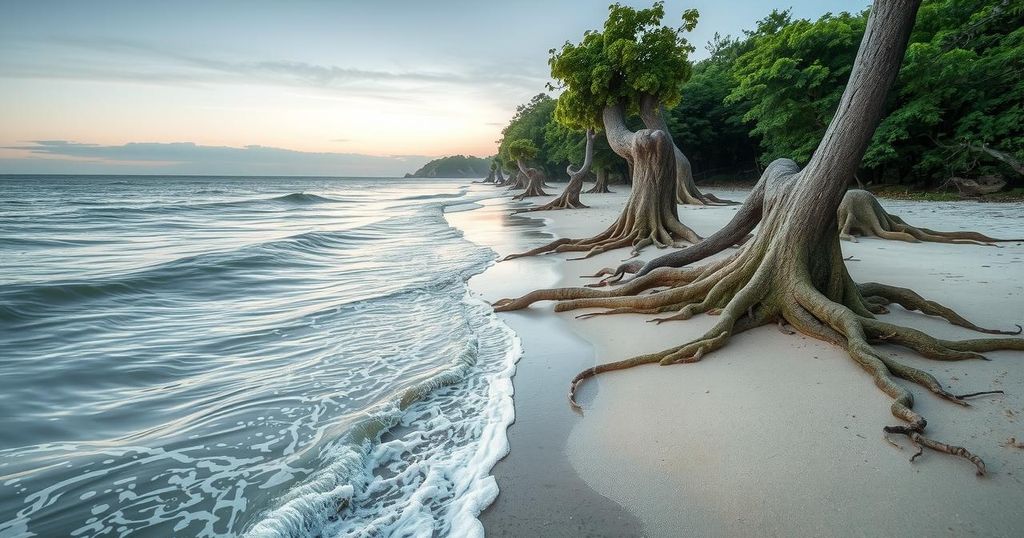In Guinea-Bissau, rising sea levels are endangering coastal villages like Djobel, pushing residents into poverty. The inundation of seawater has ruined farmland and contaminated water supplies. This situation illustrates the need for climate justice as these vulnerable communities face significant risks from climate change despite contributing minimally to emissions.
Rising sea levels in Guinea-Bissau are posing a grave threat to coastal communities, including the village of Djobel, which is at risk of disappearing. The influx of seawater has rendered farmland unusable, contaminated drinking water sources, and caused significant damage to homes, pushing villagers into extreme poverty despite the country’s minimal greenhouse gas emissions. The situation underscores a pressing need for climate justice as these communities face devastating impacts from a crisis they did not cause.
Guinea-Bissau, one of the poorest nations in West Africa, is witnessing the adverse effects of climate change as sea levels rise, driven by global warming. The coastline is home to thousands of residents who rely on fishing and agriculture, yet these livelihoods are increasingly jeopardized by flooding, saltwater intrusion, and a lack of resources to combat the resulting damage. The country has minimal emissions; thus, its people suffer disproportionately from the climate crisis, highlighting the call for international climate justice initiatives.
The plight of villagers in Guinea-Bissau exemplifies the urgent need for global climate action and justice, particularly for those least responsible for greenhouse gas emissions. As rising sea levels threaten their homes and livelihoods, the importance of increasing financial support from developed nations to aid affected communities is crucial. Without such efforts, the future of Djobel and similar villages remains bleak, emphasizing an urgent moral imperative for the international community to prioritize climate justice.
Original Source: www.weforum.org






